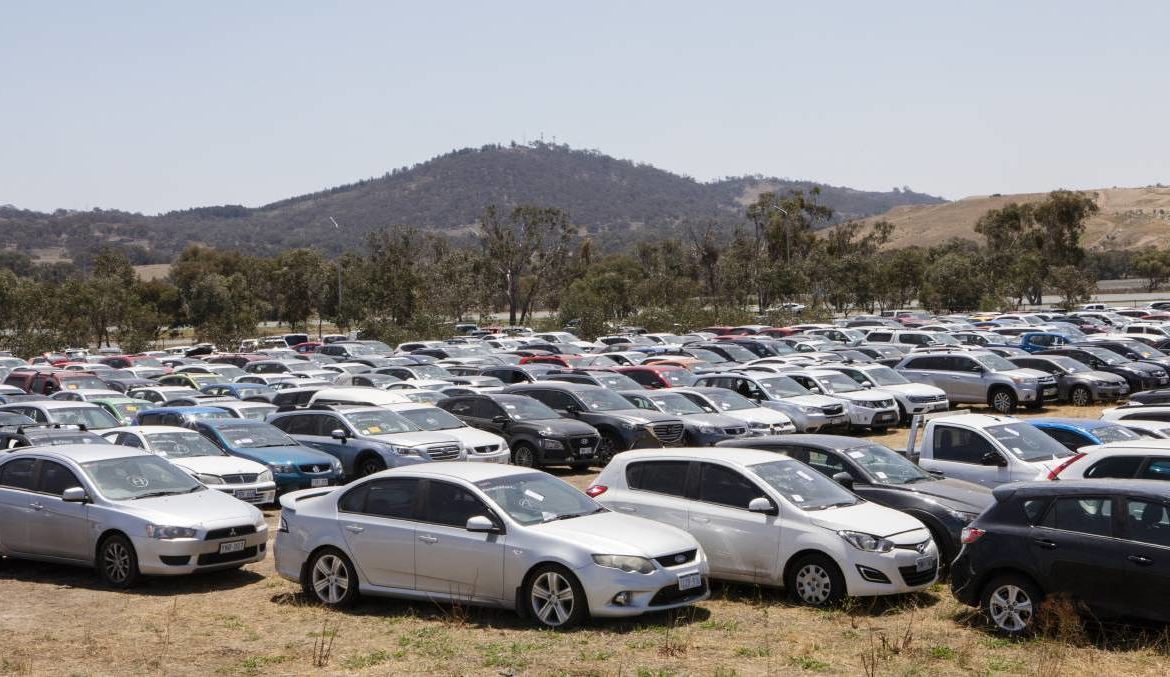news, federal-politics, economy, State of the States, unemployment, CommSec
The ACT is the second-best performing economy in Australia for the last quarter, behind only Tasmania, according to the economists at CommSec. Low unemployment of just 3.7 per cent, high numbers of new car registrations, and an overall economic output at 21.4 per cent above the decade average put the territory firmly above the pack according to the quarterly analysis of state performance from CommSec’s chief economist Craig James. The ACT recorded the fastest nominal economic growth, up 4.8 per cent over the year to September, supported by a firm job market, Mr James noted, despite the COVID-19 shock. Retail spending also grew in the ACT, at 20.9 per cent above decade-average levels. However, a dip in new dwellings down more than 40 per cent, and negative trends on construction work and equipment investment in Canberra show that growth isn’t uniform across the local economy. Population growth is only barely above 1 per cent in the ACT, and down 37.1 per cent on the decade average. The State of the States report named Tasmania the top performer for four economic quarters in a row with particularly high population growth, and strong showings in equipment spending, new dwellings and retail trade. The lowest-performing jurisdictions were the Northern Territory in last place, NSW, Western Australia and Queensland rounding out the lower half of the rankings. Comparing quarterly data against decade averages is used to judge the normal state of affairs, which is also how the Reserve Bank does with interest rates. The ACT is the only state or territory where annual new vehicle sales are above “normal”, up 11.5 per cent in the quarter compared to the decade average, continuing a trend following the extraordinary hailstorm from January 20 last year. While the weather event lasted only 30 minutes, the hail managed to damage more than 9000 vehicles in the region, and led to the ACT government paying out $507,000 in rebates on registrations and other charges.
/images/transform/v1/crop/frm/gbZxCg3zJpb4r79EPiJSKy/54f04809-7463-4834-b176-ca059d22f497.jpg/r1_0_1199_677_w1200_h678_fmax.jpg
The ACT is the second-best performing economy in Australia for the last quarter, behind only Tasmania, according to the economists at CommSec.
Low unemployment of just 3.7 per cent, high numbers of new car registrations, and an overall economic output at 21.4 per cent above the decade average put the territory firmly above the pack according to the quarterly analysis of state performance from CommSec’s chief economist Craig James.
The ACT recorded the fastest nominal economic growth, up 4.8 per cent over the year to September, supported by a firm job market, Mr James noted, despite the COVID-19 shock. Retail spending also grew in the ACT, at 20.9 per cent above decade-average levels.
However, a dip in new dwellings down more than 40 per cent, and negative trends on construction work and equipment investment in Canberra show that growth isn’t uniform across the local economy.
Population growth is only barely above 1 per cent in the ACT, and down 37.1 per cent on the decade average.
The State of the States report named Tasmania the top performer for four economic quarters in a row with particularly high population growth, and strong showings in equipment spending, new dwellings and retail trade. The lowest-performing jurisdictions were the Northern Territory in last place, NSW, Western Australia and Queensland rounding out the lower half of the rankings.
Comparing quarterly data against decade averages is used to judge the normal state of affairs, which is also how the Reserve Bank does with interest rates.
Damaged cars at a site opposite the Hume Motor Vehicle Inspection Station following the January hailstorm. Picture: Jamila Toderas
The ACT is the only state or territory where annual new vehicle sales are above “normal”, up 11.5 per cent in the quarter compared to the decade average, continuing a trend following the extraordinary hailstorm from January 20 last year.
While the weather event lasted only 30 minutes, the hail managed to damage more than 9000 vehicles in the region, and led to the ACT government paying out $507,000 in rebates on registrations and other charges.







